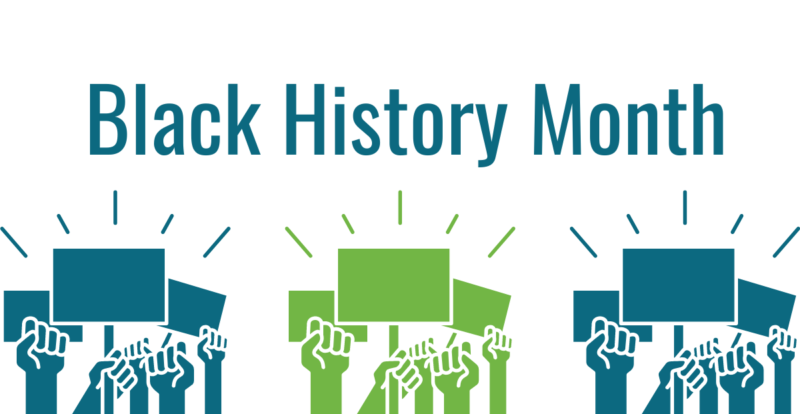1. Fannie Lou Hamer
Fannie Lou Hamer might not be a household name, but she made a tremendous impact in anti-hunger activism. In 1969, she founded the Freedom Farm Cooperative (FFC) to help farmworkers experiencing hunger in the Mississippi Delta. At its height, the FFC grew to over 640 acres of land (Time Magazine). Families could join the farm for $1 a month and receive vegetables. The farm served more than 1,600 families, and around 10% of the crops grown were distributed to residents who were unable to work. The program also included the Pig Project. Through the Pig Project, families could receive a pregnant pig and then donate the babies to other families in need. Hamer’s work prioritized “allowing members to learn skills and become self-sufficient and economically stable” to help truly eradicate hunger (CLASP).
the Freedom Farm Cooperative (FFC) to help farmworkers experiencing hunger in the Mississippi Delta. At its height, the FFC grew to over 640 acres of land (Time Magazine). Families could join the farm for $1 a month and receive vegetables. The farm served more than 1,600 families, and around 10% of the crops grown were distributed to residents who were unable to work. The program also included the Pig Project. Through the Pig Project, families could receive a pregnant pig and then donate the babies to other families in need. Hamer’s work prioritized “allowing members to learn skills and become self-sufficient and economically stable” to help truly eradicate hunger (CLASP).
2. Shirley Chisholm
 Shirley Chisholm was the first Black women to serve in Congress. She represented New York’s 12th District beginning in 1968. While in Congress, she was assigned to the House Agriculture Committee (Project Bread). During her work on the Committee, she helped to protect and expand food assistance programs. She’s known as the Architect of Women, Infants, and Children (WIC) (No Kid Hungry). To this day, WIC helps pregnant women and children under 5 purchase healthy food. The program also covers diapers and baby formula. She also played a crucial role in passing the Agriculture and Consumption Act which helped create the Supplemental Nutrition Assistance Program (SNAP). Throughout her time in Congress and her life, Chisholm was a champion of racial justice and gender equality.
Shirley Chisholm was the first Black women to serve in Congress. She represented New York’s 12th District beginning in 1968. While in Congress, she was assigned to the House Agriculture Committee (Project Bread). During her work on the Committee, she helped to protect and expand food assistance programs. She’s known as the Architect of Women, Infants, and Children (WIC) (No Kid Hungry). To this day, WIC helps pregnant women and children under 5 purchase healthy food. The program also covers diapers and baby formula. She also played a crucial role in passing the Agriculture and Consumption Act which helped create the Supplemental Nutrition Assistance Program (SNAP). Throughout her time in Congress and her life, Chisholm was a champion of racial justice and gender equality.
3. George Washington Carver
You might know George Washington Carver as the “Peanut Man.” He’s most well-known for identifying over 300 uses for the peanut. However, that name neglects many of his accomplishments in helping reduce hunger. He saw the importance of agriculture in moving towards food sovereignty for African American farmers. Carver was born into slavery in 1864. He developed an early interest in botany and eventually went on to receive a master’s degree in Agriculture from Iowa State University. Later, he taught Agriculture at Tuskegee University in Alabama (Food Finders). While teaching, he also conducted research and began helping farmers. He identified that nitrogen rich crops, such as peanuts, cowpeas, and sweet potatoes would improve the soil quality in Alabama (Grist). He also promoted natural fertilizers that were better for the environment. To share his knowledge with farmers, he hosted free seminars at universities. In addition, he went directly to the farmers by offering demonstrations at his mobile classroom, the Jesup Agricultural Wagon.
that name neglects many of his accomplishments in helping reduce hunger. He saw the importance of agriculture in moving towards food sovereignty for African American farmers. Carver was born into slavery in 1864. He developed an early interest in botany and eventually went on to receive a master’s degree in Agriculture from Iowa State University. Later, he taught Agriculture at Tuskegee University in Alabama (Food Finders). While teaching, he also conducted research and began helping farmers. He identified that nitrogen rich crops, such as peanuts, cowpeas, and sweet potatoes would improve the soil quality in Alabama (Grist). He also promoted natural fertilizers that were better for the environment. To share his knowledge with farmers, he hosted free seminars at universities. In addition, he went directly to the farmers by offering demonstrations at his mobile classroom, the Jesup Agricultural Wagon.
4. Ericka Huggins
 Ericka Huggins was a prominent leader in the Black Panther Party. She joined the Party at the young age of 19. She played a large role in the Party’s Panthers’ Free Breakfast Program. The party saw hunger as “one of the greatest forms of oppression” and identified the crucial need for food in the fight for equality. In 1971, Huggins, after spending nearly two years on false charges in jail, moved to Oakton, California. There she became the Director of the Oakton Community School (Bon Apetit). Under her guidance, the school provided three meals a day for its students. Today, Huggins is 75, and she remains a staunch advocate for food justice and other social justice causes.
Ericka Huggins was a prominent leader in the Black Panther Party. She joined the Party at the young age of 19. She played a large role in the Party’s Panthers’ Free Breakfast Program. The party saw hunger as “one of the greatest forms of oppression” and identified the crucial need for food in the fight for equality. In 1971, Huggins, after spending nearly two years on false charges in jail, moved to Oakton, California. There she became the Director of the Oakton Community School (Bon Apetit). Under her guidance, the school provided three meals a day for its students. Today, Huggins is 75, and she remains a staunch advocate for food justice and other social justice causes.
5. Booker T. Whatley
Booker T. Whatley, a student of George Washington Carver, also made important contributions to anti-hunger work by collaborating with farmers. He taught farmers the practice of regenerative agriculture, encouraging diversifying crops and sustainable practices (Slow Food USA). He created a guide called “How to Make $100,000 From a 25-acre Farm,” and distributed it to farmers to help them expand their profits. He also developed a Clientele Membership Model Club, where customers can pay a fee to receive a portion of the harvest. This system is the foundation of the modern CSA system. However, the CSA practice is often miscredited to two New England farms in 1986 (Smithsonian Institute).
farmers. He taught farmers the practice of regenerative agriculture, encouraging diversifying crops and sustainable practices (Slow Food USA). He created a guide called “How to Make $100,000 From a 25-acre Farm,” and distributed it to farmers to help them expand their profits. He also developed a Clientele Membership Model Club, where customers can pay a fee to receive a portion of the harvest. This system is the foundation of the modern CSA system. However, the CSA practice is often miscredited to two New England farms in 1986 (Smithsonian Institute).


